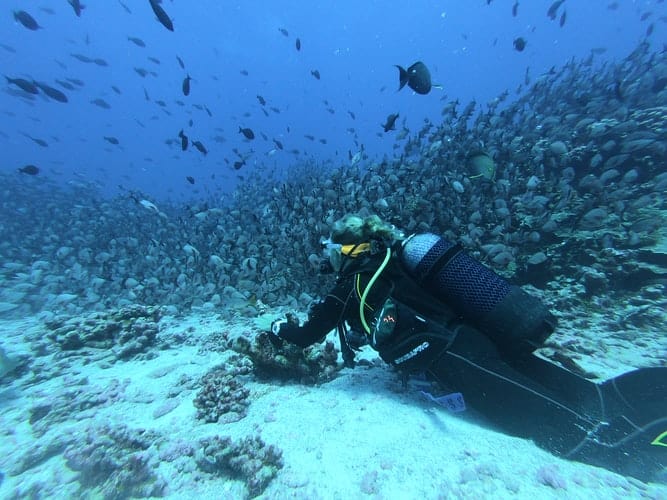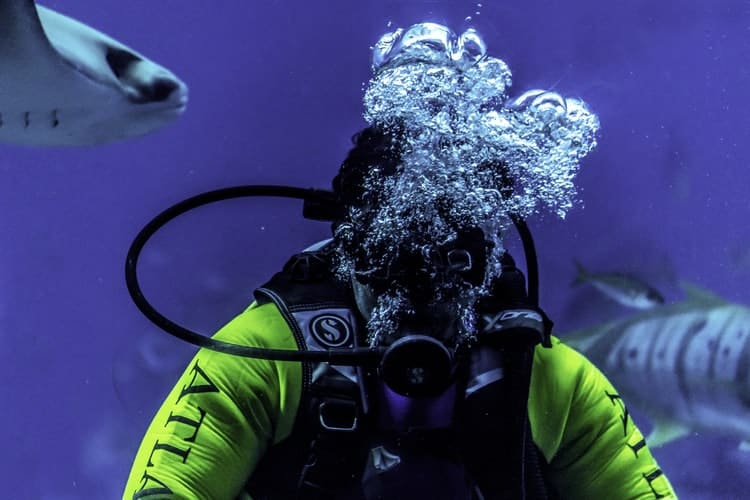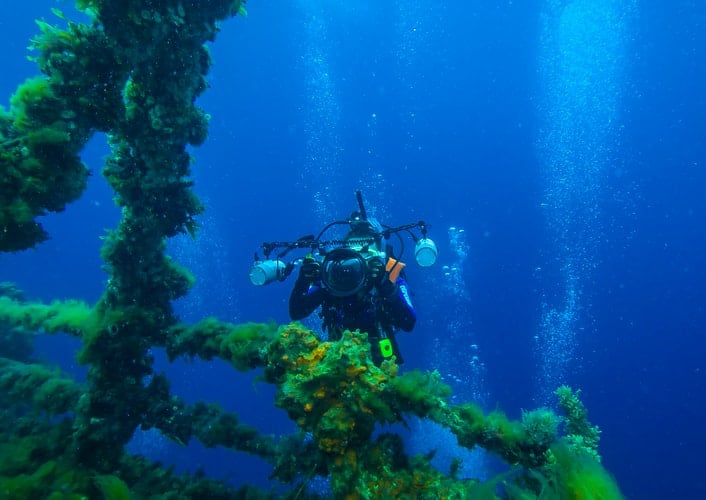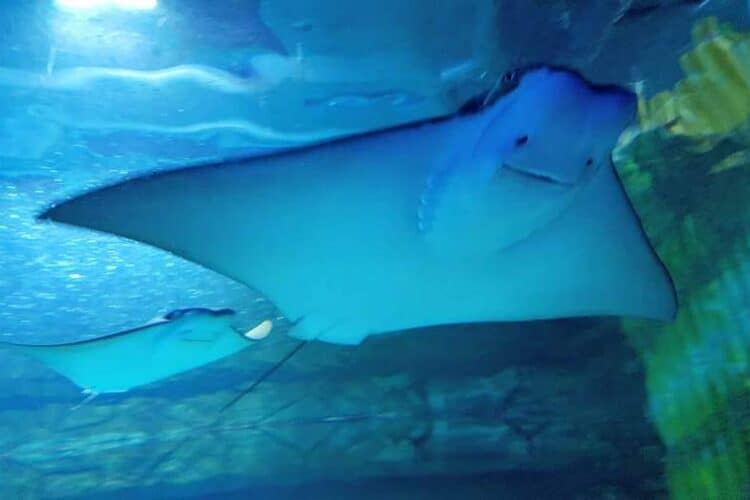There are many beautiful seas and reefs surrounding Australia, and this means that scuba diving is an extremely popular pastime for both locals and tourists alike.
What is the best way to see the ocean and its marine life in all its glory? The answer is simple, by immersing yourself within in and the best way to do this is to take up scuba diving.
If you are interested in getting up close and personal with some of Australia’s most incredible marine life and are considering taking part in a scuba diving session then we have all the information you are going to need.
In this article, we will be discussing some scuba diving basics which will help beginners really get a taste and feel for the activity and ensure that you are fully armed with the relevant knowledge for your first session.
for your first session.

What Is Scuba Diving?
Before we get into the scuba diving basics, it is important for us to clarify what scuba diving is. In short, scuba is a type of diving in which the diver has a self-contained underwater breathing apparatus, also known as Scuba.
The breathing apparatus does not rely on anything from the surface and contains an air supply just for that diver. This means that the diver has much better freedom when it comes to moving around under the water and is much less restricted.
4 Common Scuba Diving Basics Questions
There may be a whole host of questions that plague the mind when initially taking on a scuba diving session, and for a beginner, it can be a pretty big deal and in some cases, rather intimidating.
But there is no need to fear, we have the answers to some of the most commonly asked questions from Scuba diving novices.

1. How Deep Down Can Beginners Go When Scuba Diving?
When beginning your scuba diving journey, you will not be able to go very deep down, mainly for safety reasons. Instructors want new divers to become confident whilst under the water and doing so at a relatively shallow depth is the best way to grow your confidence.
Until you receive the next level of certification, beginners will be allowed to dive between depths of between nine and twenty metres, which is equivalent to between thirty and sixty-seven feet.
There are issues that come along with doing a deep dive (considered to be in depths below twenty metres) and these require additional training that beginners will have no knowledge of.
These issues are decompression sickness, more commonly known as the bends and in more severe cases divers can experience nitrogen narcosis or oxygen toxicity.
So while it may be frustrating to not be able to dive in at the deep end straight away, it is essential for your safety.
2. How Do You Prepare For A Scuba Dive?
As with any activity, there are preparations that need to be made before your dive can begin. In this section, we are going to take a closer look at what these are.
Choosing your location is an essential preparation step, things like visibility need to be taken into account as well as what the conditions are likely to be. That being said, if you are working with a qualified instructor, which you likely will be, they will have more of a say in which location you will be diving.
It is vital that you ensure your scuba gear is in full working order and that you will have everything you are going to need during the dive. Again, if you are hiring your equipment, this will be taken care of for you but it is always worth checking over any rented gear to make sure that it is fully safe for use. Double-checking never hurt anyone!
A common mistake made by beginners when scuba diving is that they do not make sure that they are well hydrated before diving. Scuba diving is a strenuous activity and if you are dehydrated, your energy levels will likely wane much quicker, which could put you in a potentially dangerous situation under the water.
Before entering the water, listen to everything that your instructor tells you and be sure to ask any questions so that you fully understand the process and any safety instructions which are being given.
3. What Equipment Is Used During A Scuba Dive?
There is a lot to learn when you first begin scuba diving and the amount of equipment that is used can be overwhelming. In this section, we are going to briefly explain the name of each piece of equipment and its function.
This is the most crucial piece of equipment in a scuba dive since it is what contains the air that will enable you to breathe whilst under the water.
This is simply a device that controls your buoyancy whilst under the water by establishing a neutral buoyancy through the use of a controlled ‘bladder’ within the device.
These two gauges will tell you information relating to the water pressure and how deep you have dived.
It is important to have a mask that fits comfortably on your face, many experts recommend buying your own mask which is ideally suited to you even if you are renting the rest of your equipment.
The function of a wetsuit is it traps water within it and this allows your body to heat up the water, keeping you warm during the scuba dive.
This device is used to breathe whilst under the water and is what is commonly referred to as a diving regulator or a scuba.
These are used to propel the diver through the water and it is important to get fins that are as light as possible so that it is easier to move whilst wearing them. There is also the option to wear some underwater socks which help in the prevention of blisters, which can be, as you well know, very uncomfortable.
Your dive computer will monitor various elements of the dive such as depth, pressure and length and is commonly used to ensure that conditions such as the bends can be avoided.

4. Is There An Age Limit For Scuba Diving?
The youngest that anyone can take part in a scuba dive is ten years old. However, it is recommended that anyone taking part is in good physical health since, as we mentioned earlier, scuba diving is a strenuous activity.
Have An Enjoyable Experience When Diving
Scuba diving can be a very rewarding and enjoyable experience but due to its nature, being in the water can pose risks for beginners if safety is not observed.
There is no cause for concern, however, since working alongside a qualified instructor can mean that beginners can have their first attempt at scuba diving in a safe and fun environment.
More Pages On Things To Do
These small jetties provide opportunities for various recreational activities, such as fishing, photography, and taking leisurely strolls to enjoy the bay's natural beauty. They are also great places...
Just opened on August the 25th 2023 in Hervey Bay is the new Golfing attraction offering 18 holes of fun for all ages! They offer the locals something new to do in Hervey Bay! Mini Golf Hervey Bay...


